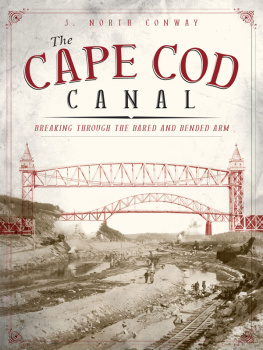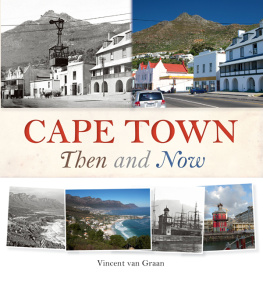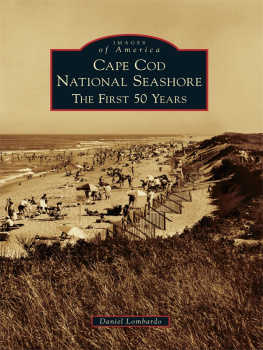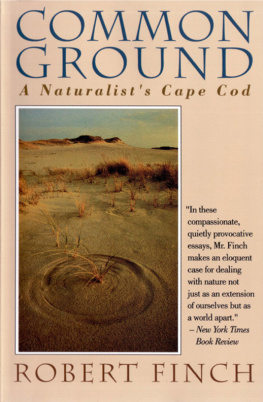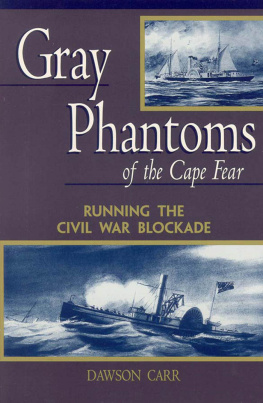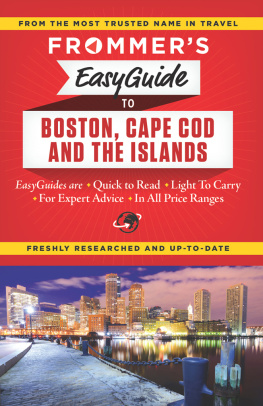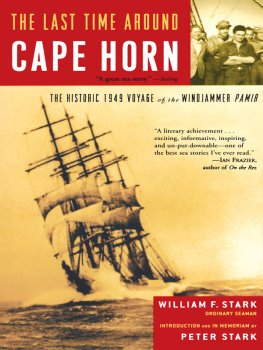CAPE COD
AND THE
CIVIL WAR
THE RAISED RIGHT ARM

STAUFFER MILLER

Published by The History Press
Charleston, SC 29403
www.historypress.net
Copyright 2010 by Stauffer Miller
All rights reserved
Front cover: Top, left to right: Alvin Fish, U.S. Army Heritage and Education Center; George Wartrous, Harwich Historical Society; Andrew T. Shiverick, Woods Hole Historical Collection. Bottom: Forty-first Massachusetts Regiment, University of Virginia Special Collections.
First published
2010 e-book edition 2011
ISBN 978.1.61423.106.6
Library of Congress Cataloging-in-Publication Data Miller, Stauffer.
Cape Cod in the Civil War : the raised right arm / Stauffer Miller.
p. cm.
Includes bibliographical references and index.
print edition ISBN 978-1-59629-984-9
1. Cape Cod (Mass.)--History--19th century. 2. Massachusetts--History--Civil War, 1861-1865.
3. United States--History--Civil War, 1861-1865. 4. Cape Cod (Mass.)--Biography.
5. Massachusetts--History--Civil War, 1861-1865--Biography. 6. United States--History--Civil
War, 1861-1865--Biography. I. Title.
F72.C3M64 2010
974.49203--dc22
2010037822
Notice: The information in this book is true and complete to the best of our knowledge. It is offered without guarantee on the part of the author or The History Press. The author and The History Press disclaim all liability in connection with the use of this book.
All rights reserved. No part of this book may be reproduced or transmitted in any form whatsoever without prior written permission from the publisher except in the case of brief quotations embodied in critical articles and reviews.
CONTENTS
MAPS
ACKNOWLEDGEMENTS
So many people assisted me in this project that it would be best to call it a collaborative effort. Chief collaborators were my computer team of wife Ellie, friend Susan Hanson and editor Jeff Saraceno. Ellie helped me turn my computer from master into slave and exploit its great powers of information organization, storage and retrieval. Susan, of Wisconsin and daughter of solid Truro stock, mined the Internet and her mind, unearthing countless valuable nuggets. Jeff patiently guided me down the dpi highway to extract the highest-quality images possible from the rather questionable graphics I presented to him.
To write about Civil War-era Cape Cod, one must reckon with the great importance of Sandwich. There to help me with that place was Barbara Gill of its town archives. One especially fine piece of information she found was that soldier Samuel Wood was Native American. She also forwarded copies of the useful George Haines letters. Jim Coogan of Sandwich answered queries about Quakers. Helping with Falmouth matters were Mary Sicchio of Cape Cod Community College, Susan Witzell of Woods Hole Historical Society and the reference librarians at Falmouth Library, who graciously sent me Falmouth Enterprise articles. Joyce Peay of Falmouth and the Cape Cod Genealogical Society illuminated me on the operation of the substitute system.
Indispensable were the online issues of The Barnstable Patriot, placed there through the grant-writing capabilities of Lucy Loomis, director of Sturgis Library in Barnstable Village. Barnstable town clerk Linda Hutchenrider kindly shared the elegant Barnstable Rebellion Record book. Jim Gould of Cotuit lent assistance with the soldiers of Marstons Mills; Eva Needs of Centerville helped with her ancestral family, the Holways; and Burton Derick of Dennis provided a copied diary of Francis Cahoon of Chatham and other useful materials. Kathleen Remillard, adult services librarian at Brewster Ladies Library, forwarded useful items. Sally Leighton, also of Brewster, found and photographed gravestones. Ellen St. Sure furnished assistance with the Crosbys of Brewster. Responding to every request was Desiree Mobed, director of the Harwich Historical Society. Margery Campbell of East Harwich answered genealogical questions.
While surfing the Web, I came across Paul Badger of Orleans. Not only did he encourage me to research his ancestor Aaron Snow but he worked with Mary Ann Gray of the Chatham Historical Society to get me a copy of the Francis Rogers diary. Furthermore, through work with Roberta Cornish at the Eastham Historical Society, he put me on the track of the diaries of Joseph J. Rudolph and Nathan Gill. Bonnie Snow was her usual helpful self with inquiries relating to Orleans. Cynthia Moore photographed gravestones and scanned newspaper images. Off-cape, Laura Pereira of the New Bedford Whaling Museum located for me the Maria W. Jones Diary; Mark Savolis of Worchester explained the workings of Civil War artillery; and Jennifer Fauxsmith alerted me to the excellent executive letters series at Massachusetts State Archives.
Further afield, Elizabeth Margutti of the University of Virginias Alderman Library found obscure but invaluable government documents. Terry Reimer at the National Civil War Medicine Museum in Frederick, Maryland, answered several questions. Jill DAndrea of the National Archives in Washington helped me through the process of first knowing what to request from its vast holdings and then making the request. Marjorie McNinch of the Hagley Library in Delaware provided photocopies of Du Pont letters. Bob Shea of Atkinson, New Hampshire, contributed ideas and corrected my mistakes in ship terminology. Mike Garabedian of Wardman Library of Whittier College in California furnished a copy of a pertinent Parker Pillsbury letter.
I am dedicating this book to Dick Jurkowski of Marstons Mills, who died unexpectedly and prematurely in October 2009. He was always supportive of me and interested in what I was doing. What more can be asked of a friend? One great bond we shared was our passion for the New England Patriots football team, which brings to mind some lines of sports writer Grantland Rice: For when the One Great Scorer comes to mark against your name, He writesnot that you won or lostbut how you played the game. Dick played the game with humor, goodwill and integrity.
INTRODUCTION
War and earthquakes are similar. Both are characterized by a prolonged buildup of stressabove ground with war and below with the earthquakeuntil pressures become so great that it is uncontainable, and a violent, cataclysmic eruption occurs. Through the decades of the 1830s, 40s and 50s, stress between Americas Northern and Southern sections built to the point that war erupted in 1861. These two intervals or time periodsthe stress and the eruptionconstituted America and Cape Cods era of the Civil War.
Working on the fault line of the rumbling slavery issue were the numerous Cape Cod ship captains trading with Southern ports. With enactment of the Fugitive Slave Law in 1850, they became bound by law to uphold it; that is, prevent the release of any fugitive slave found on board and see to his return South. Sympathy for the slave or slavery cause mattered not. Heavy fines and even imprisonment came with failure to comply. Pulled one way by the preaching of the abolitionists and their sense of humanity and the other by law and a desire to maintain livelihoods and good relations in Charleston, Savannah and Mobile, the Cape captains did their jobs and, for the most part, kept their own counsel.
Considering the Capes pocketbook interest in a healthy Southern trade, conventional wisdom would say it would vote in support of the Democrats, the party of placating the South. However, in a seeming contradiction, in the presidential elections of 1856 and 1860, it overwhelmingly favored the Republicansthe party that, if elected, would most likely divide the country and disrupt that trade. But radically Republican the Cape people were not. When abolitionist John Brown attempted to incite slaves to rebellion, a huge gathering of Cape citizens condemned his actions. All that can be concluded is that, as Cape Cod moved through midcentury, its political stances were a confusingly contradictory mix of liberality and conservatism.



